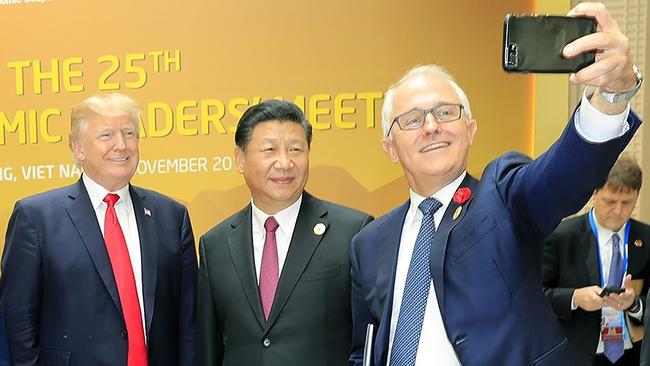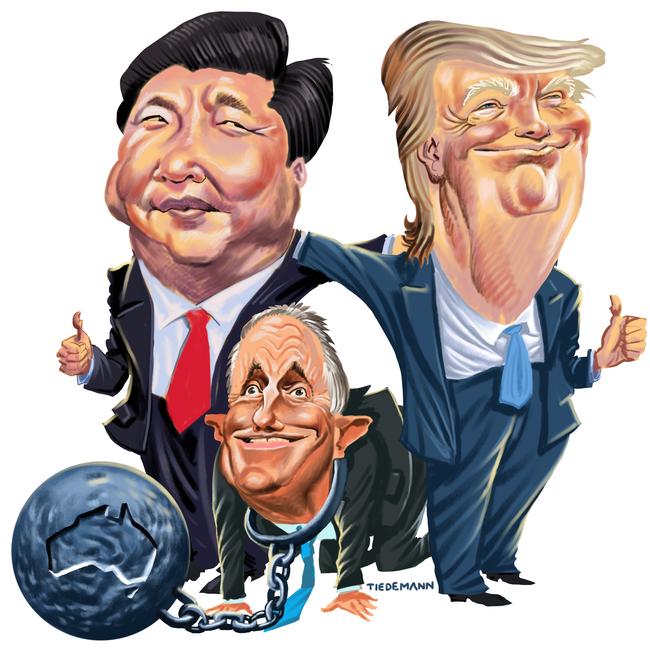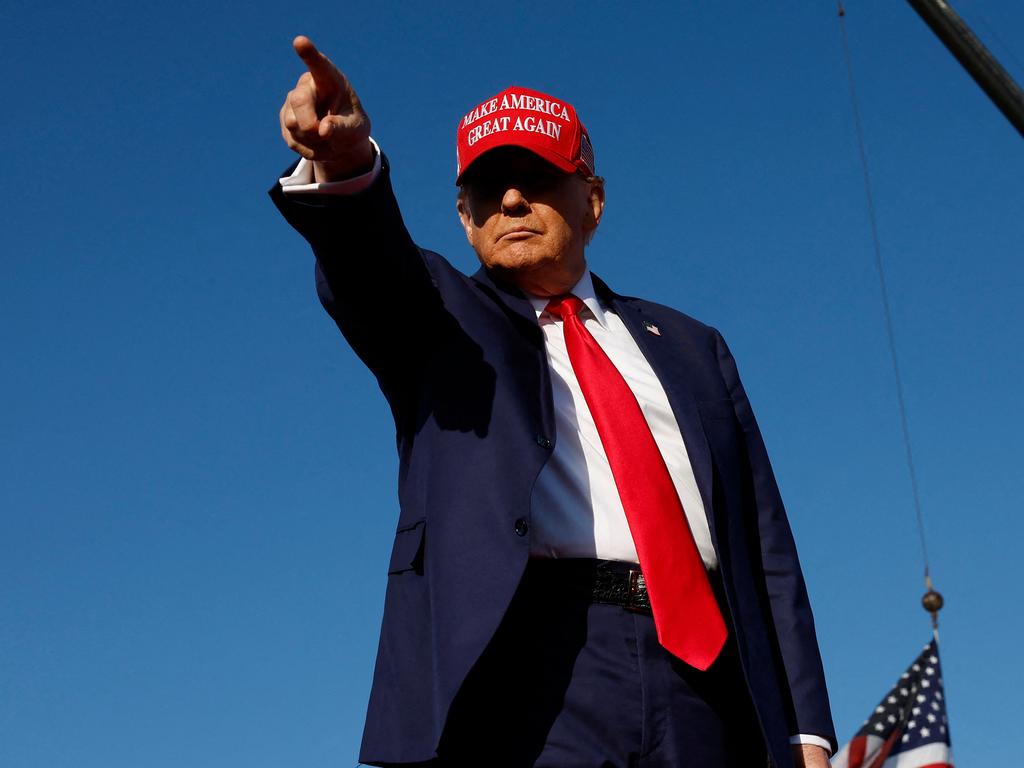Turnbull’s timing is ill and the implications are real with Trump

Dr Rudd appears to have been unsuccessful so far in his attempts to argue Australia’s case on tariffs, unlike former ambassador Joe Hockey under Trump 1.0.
Trade Minister Don Farrell says talks are continuing but he has ruled out making a last-minute dash to Washington to sort things out ahead of Mr Trump’s decision on Thursday AEDT. Anthony Albanese, meanwhile, is holding discussions with Rio Tinto and BlueScope to “engage constructively” for a “positive outcome”.
Taxpayers, be warned.
More despairingly, by comparing Mr Trump unfavourably with Chinese President Xi Jinping in a media interview, Mr Turnbull has invited the US President into Australian politics at a delicate moment.
Mr Turnbull told Bloomberg television the US was becoming an increasingly unreliable ally and Mr Trump’s actions were benefiting the Chinese President.
“Where Trump is chaotic, (Mr Xi) will be consistent. Where Trump is rude and abusive, he’ll be respectful. Where Trump is erratic, he will be consistent,” Mr Turnbull said.
Mr Trump responded that Mr Turnbull was a lightweight prime minister who was always leading from behind, never understood what was going on in China and did not have the capacity to do so.
The exchange is more substantial than simply political theatre. Australia is at a sensitive stage in building its relations with the Trump administration.

While Mr Trump has been criticised for his negotiating stance with Ukraine, he has made clear where his defence priorities lie. These are supporting Israel in its existential fight in the Middle East and in countering China’s expansionist ambitions to challenge US dominance militarily, technologically and diplomatically, including in the Pacific.
Mr Trump was incorrect to assert that Mr Turnbull did not understand China, given that Mr Turnbull was among the first world leaders to call out publicly the dangers posed by China’s global rollout of the Huawei telecommunications network.
But Mr Trump has made clear his view of events and willingness to engage with Australian politics.
What he will see is that, under the Albanese government, Australia has turned its back on Israel to align itself with what he would consider to be unreliable bedfellows in the UN.
We have prioritised our trade relationship with China over the more assertive public stance taken by the Morrison government.
One result has been China’s willingness to send its navy to circumnavigate the continent and conduct live-fire exercises, largely unchallenged by the Prime Minister.
Mr Trump has made no secret of his respect for the good relations enjoyed between close allies. He cited as much in his consideration of giving Australia an exemption to tariffs on steel and aluminium.
But his bigger interest is in US allies pulling their weight in terms of defence spending.
On this score, Australia has made a down payment on the AUKUS nuclear-powered submarine partnership to enhance US submarine manufacturing capabilities. This will be welcome but probably not sufficient.
Defence Strategic Review co-author Peter Dean has urged the government to use the March 25 budget to lift defence spending from its current 2 per cent to “somewhere around 3 per cent” of GDP – the level advocated by the Trump administration.
Professor Dean is correct to say China’s naval activities have underscored the vulnerability of Australia’s military bases, including those used by US forces.
This is something that will not be lost on Mr Trump and is absent from Mr Turnbull’s ill-considered comments on the issue.




Regardless of whether Donald Trump persists with tariffs on Australian steel and aluminium exports to the US, he has given another reminder of the lingering impact that former prime ministers Kevin Rudd and Malcolm Turnbull have on our current fortunes.